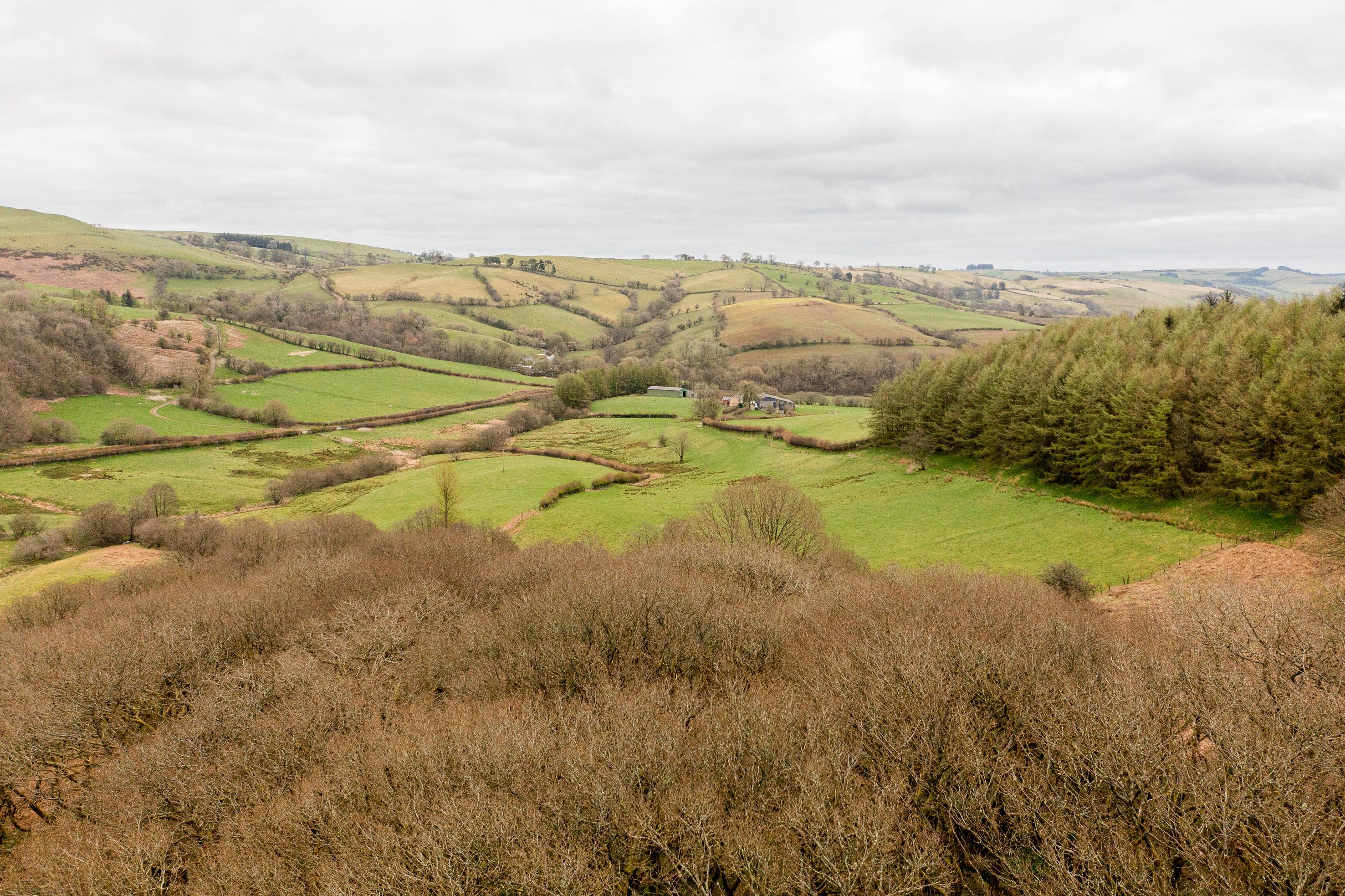Small charity takes out big loan to boost nature in Wales
A small Welsh charity with big plans for nature’s recovery is launching an appeal to help breathe new life into an upland area of Mid Wales.
Last year, Radnorshire Wildlife Trust (RWT) took out a loan to buy 164 acres – about the size of 80 rugby pitches – at Pentwyn, near Llandrindod Wells in a bid to help wildlife fight back and tackle climate change, river pollution and flooding across central Wales.
The trust now needs to raise £1 million to secure the future of the land for people and nature. Additional funds are also needed to restore the land – for example, £1,000 could pay for 300 metres of hedgerow.
Wildlife TV presenter and RWT patron, Iolo Williams, says: “In Wales we’ve lost beautiful birds, such as the nightingale and corn bunting, and the haunting call of curlew and purring of the turtle dove may soon disappear too.
“Much-loved animals, such as red squirrels and water voles, which were once widespread in Wales, are now only found at a few sites and are threatened with extinction. Nature is in crisis, and we need to help wildlife fightback fast.
“We’re appealing to people everywhere to help us secure and protect this land for the future. Nature needs it and so do we because time spent in natural places soothes our souls and makes us feel good. People will be welcome at Pentwyn. Please donate if you can – nothing is too small to help!”
The land at Pentwyn will be transformed from an intensively farmed landscape into a humming, buzzing and chirruping oasis where the calls of threatened birds can be heard once more.
Pentwyn lies beside other wild land, so there is good potential to help wildlife thrive again across a wider area by expanding and connecting wild habitat and increasing nature’s ability to cope with climate change.
Wales is close to the bottom of the international league table of 240 countries for nature:
- A 2021 report found that Wales has lost around half of its wild animals and plants.
- One in six species are threatened with extinction, including water voles and red squirrels.
- More than 60% of protected rivers in Wales exceed phosphate pollution limits.
At Pentwyn, RWT will allow natural habitats to recover, creating wetlands, scrub and potentially some new woodland, as well as increasing flowering plant numbers and diversity to ensure the landscape is better is better equipped to cope with climate change.
By restoring nature, the land will also retain more rainwater, filtering it and releasing it more slowly. This will help keep the nearby River Lugg clean and healthy.
At least 30% of the world’s land and seas should be protected by 2030 to prevent the destruction of the planet’s biodiversity.
James Hitchcock, RWT’s chief executive, says: “Welsh wildlife is under a huge amount of pressure, but everyone can do their bit to help us restore nature to Pentwyn.
“This project will benefit us all. It will be somewhere to enjoy a wander through the wild, listen to the waterfall, see the flash of a wood warbler and watch butterflies’ flit across a wilder hillside.
“Pentwyn will also store more carbon, help tackle the climate crisis, stop rainwater washing off the hill too quickly and help reduce pollution levels in the River Lugg. Creating more space for nature will have the added benefit of boosting tourism and creating more green jobs.”
Despite the small size of the charity, RWT cares for 19 nature reserves and is one of the driving forces trying to get better protections for rivers such as the Wye to stop the high level of pollution.
People can donate to the Pentwyn appeal at: https://www.rwtwales.org/appeals/wilder-pentwyn-appeal
To view RWT’s vision for the future at Pentwyn visit: https://www.rwtwales.org/our-projects/pentwyn-vision-future
Picture captions:
Radnorshire Wildlife Trust patron Iolo Williams with chief executive James Hitchcock at Pentwyn.
A view of the 164 acres of land at Pentwyn.
Images: Shooting Reels.





